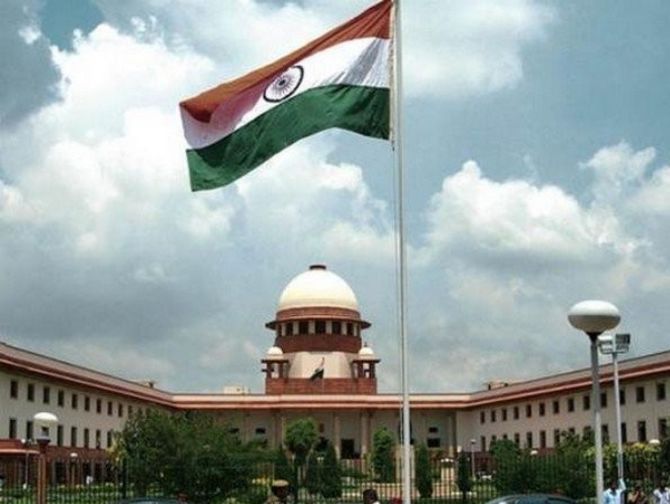'What the long term repercussions of the Ayodhya judgment are will unfold in time.'
'And I hope the consequences are not going to be as damaging to us as they were to Pakistan,' says Aakar Patel.

The Ayodhya judgment has reminded one of our judicial history. On the Indian subcontinent, the judiciary has invoked something called the Doctrine of Necessity.
In Pakistan, this happened 65 years ago. Just a short while after independence, the Pakistan army took over charge of the country, in a sequence of events that made General Ayub Khan the leader of the country.
The sequence was triggered by the governor general, a man named Ghulam Muhammad. He was a partner of the Mahindra group of India in a company that was originally called Mahindra and Muhammad (later renamed Mahindra and Mahindra). He was a clever man, a chartered accountant by training, who was named to run the finance ministry.
After the death of Jinnah in 1948, and the assassination of Jinnah’s deputy Liaqat Ali Khan in 1951, the Pakistan Muslim League was leaderless and in this space Muhammad became governor general.
In 1954, he unlawfully dismissed the Pakistan constituent assembly which was taking much longer than India to frame its constitution. Those who were dismissed went to court where it was determined that Ghulam Muhammad's actions were unlawful. However, he and the the new ministers who had taken power with him went into appeal.
Here the Supreme Court backed Muhammad, justifying his illegal action. The judgment reads: 'Thus the issue raised refers to the extraordinary powers of the governor-general during the emergency period and not to powers which vest in the governor-general during normal times when the vital organ of the Constitution, namely the legislature, is functioning, and the question that we have to consider is whether there is any provision in the constitution governing such a situation or any other legal principle within, outside or above the constitution acts which entitles the governor-general to act in case of necessity of such a nature.'
Basically, since there was an emergency (and it didn't matter that the emergency was a creation of the governor-general), he had to be allowed to do whatever he wanted.
The court added: 'If nothing should be done but what is according to law, the throat of the nation might be cut while we send for someone to make the law.' This is a quote from Oliver Cromwell, winner of the English civil war.
The court added that it 'found that the governor-general's actions prevented the breakdown of the political and constitutional institutions of Pakistan.' And so the court overlooked wrongdoing and justified it.
To my mind it appears that the Ayodhya judgment also comes out of similar thinking and a reliance on necessity.
I am absolutely unclear about why the court felt it essential to hand over the entire land to the temple after saying that it could not conclude that the Babri mosque was built on a demolished structure.
The Indian Supreme Court accepts that the breaking down of the mosque after the mobilisation by the Bharatiya Janata Party was a violation of the rule of law and a crime.
It also accepts that the act of putting idols in the mosque was that of desecration. But it nonetheless gives the land over to those who desecrated saying that 'whether a belief is justified is beyond judicial inquiry. Once faith is established, courts should defer to it.'
It has become clear that legally India has done what the Vishwa Hindu Parishad and the BJP were demanding all this time.
When I was a student 30 years ago, Arun Shourie came to our university in Baroda to speak on the issue. This was three years before the mosque was demolished. Shourie (who was then a supporter of the BJP) said that Muslims should take the mosque and go somewhere else, because for Hindus the land was sacred.
What we are going to do now is the same thing except that it has legal cover.
We should know that the Pakistani court's actions had long term repercussions. The form of law that we have in India and Pakistan relies on precedent.
A few years later, by when Ghulam Muhammad had died, the court used the same reasoning to validate the military takeover of the government by General Ayub Khan.
And then again when General Zia-ul Haq hanged prime minister Zulfikar Ali Bhutto and became president, the courts were fine with it because there had already been a precedent.
Closer to our time, General Musharraf was validated in the same fashion. All the dictators have operated under legal cover, and their actions have been seen as legitimate.
What the long term repercussions of the Ayodhya judgment are will unfold in time. But there will be repercussions, of course. And I hope the consequences are not going to be as damaging to us as they were to Pakistan.
Aakar Patel is Executive Director, Amnesty International India. The views expressed here are his own.
- You can read Aakar's earlier columns here.









 © 2025
© 2025